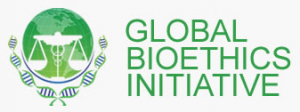About GBI
GBI is associated with the United Nations Department of Public Information (DPI), which aims at facilitating an exchange of information and development of partnerships within UN offices as well as with not-for-profit organizations around the world, to enhance interaction with an understanding of the work of the United Nations. Many of the issues addressed by GBI are relevant to the work of the UN, including reproductive and sexual rights, human organ trafficking, and the ethics of population aging.
Global Bioethics Initiative (GBI) is a tax-exempt 501(c)(3) international, non-profit organization co-founded in 2011 by Ana Lita, Ph.D. (applied ethics) and Charles Debrovner, M.D. (retired fertility expert).
MISSION
Global Bioethics Initiative (GBI) is dedicated to fostering public awareness and understanding of health and bioethical issues, and to exploring solutions to bioethical challenges.
Why Study Global Bioethics?
Rapid progress in life-sciences, medicine and biotechnology has provided us access to new ways of treating, preventing and even curing human diseases. As the impact of these advancements on individuals, communities, and societies grows, so does the importance of bioethics, a field which emerged approximately fifty years ago. Through both a theoretical and a practical endeavor, bioethics allows us to discuss and understand our deep moral concerns, fears, and hopes regarding the impact of the medical sciences and biotechnological advancements on our lives. Visit GBI website for more information about our latest Webinars, summer programs including the online program testimonials (Aug 3 – 8, 2020) and current Covid-19 news and articles.
Why Host the International Bioethics Summer School?
- Review important ethical, philosophical, and social problems in medicine, health, and biomedical research through the scope of global perspective.
- Develop critical skills for evaluating and articulating ethical and philosophical claims, arguments, and goals frequently found in medical and biomedical research literature and policies.
- Formulate, present, and defend ethical positions on a global health/bioethical issue and to be able to communicate these ideas and conclusions effectively.
- Cultivate networking skills, and foster contacts with academics, healthcare professionals, policy decision makers, bioethicists, and lawyers, from allover the world.

